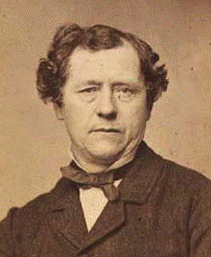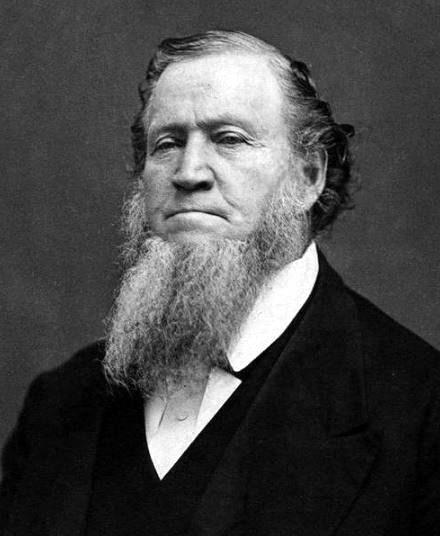|
Otto Malling
Otto Valdemar Malling (1 June 1848 – 5 October 1915) was a Denmark, Danish composer, from 1900 the cathedral organist in Copenhagen and from 1889 professor, then from 1899 Director of the The Royal Danish Academy of Music, Royal Danish Academy of Music, Copenhagen. Otto Malling was born in Copenhagen. He became a pupil of Niels Wilhelm Gade and Johan Peter Emilius Hartmann; in his later career he mainly composed organ works and vocal music, but he also wrote a Concert Fantasy (Malling), Fantasia for Violin and Orchestra, Op. 20, an appealing Robert Schumann, Schumannesque piano trio (in A minor, opus 36, 1889), piano quartet (in C minor, opus 80), and a Johannes Brahms, Brahmsian piano concerto in C minor (opus 43, 1890), all of which are recorded and infrequently heard in concert. His output also contains among other substantial works a cantata ''Det hellige Land'', opus 46, (published in 1897), a symphony in D minor, opus 17 (published in 1884), and an octet for strings, ... [...More Info...] [...Related Items...] OR: [Wikipedia] [Google] [Baidu] |
Christian Julius Hansen
Christian Julius Hansen (6 May 1814 – 15 March 1875) was a Danish composer, organist, voice teacher and choirmaster. He studied with Johan Peter Emilius Hartmann; his works include songs, choral and orchestral pieces as well as light operas. In several of his song compositions Hansen revealed an uncommon sense of choral movement and considerable melodic vein, sometimes used fresh and cheerfully, sometimes on a quiet, slightly melancholic way. Life Christian Hansen was born in Christianshavn, the son of stonemason Nicholas Hansen (1775–1834) and his second wife Frederikke Christine, née Hess (1775–1850). He was admitted to the Giuseppe Siboni Conservatory when he was 11 years old, but soon had to focus his attention on composition because his beautiful voice began to change. He was encouraged by both J.P.E. Hartmann and Christoph Ernst Friedrich Weyse, to whom he dedicated his first printed work ''Six Romances'' written in 1835. In 1840 he took part in the Musikfore ... [...More Info...] [...Related Items...] OR: [Wikipedia] [Google] [Baidu] |
Danish Male Classical Organists
Danish may refer to: * Something of, from, or related to the country of Denmark People * A Danish person, also called a "Dane", can be a national or citizen of Denmark (see Demographics of Denmark) * Culture of Denmark * Danish people or Danes, people with a Danish ancestral or ethnic identity * A member of the Danes, a Germanic tribe * Danish (name), a male given name and surname Language * Danish language, a North Germanic language used mostly in Denmark and Northern Germany * Danish tongue or Old Norse, the parent language of all North Germanic languages Food * Danish cuisine * Danish pastry, often simply called a "Danish" See also * Dane (other) * * Gdańsk * List of Danes * Languages of Denmark The Kingdom of Denmark has only one official language, Danish, the national language of the Danish people, but there are several minority languages spoken, namely Faroese, German, and Greenlandic. A large majority (about 86%) of Danes also ... {{disambigu ... [...More Info...] [...Related Items...] OR: [Wikipedia] [Google] [Baidu] |
Directors Of The Royal Danish Academy Of Music
Director may refer to: Literature * ''Director'' (magazine), a British magazine * ''The Director'' (novel), a 1971 novel by Henry Denker * ''The Director'' (play), a 2000 play by Nancy Hasty Music * Director (band), an Irish rock band * ''Director'' (Avant album) (2006) * ''Director'' (Yonatan Gat album) Occupations and positions Arts and design * Animation director * Artistic director * Creative director * Design director * Film director * Music director * Music video director * Television director * Theatre director Positions in other fields * Director (business), a senior-level management position * Director (colonial), head of chartered company's colonial administration for a territory * Director (education), head of a university or other educational body * Company director, a member of (for example) a board of directors * Cruise director * Executive director, senior operating officer or manager of an organization or corporation, usually at a nonprofit * Finance dir ... [...More Info...] [...Related Items...] OR: [Wikipedia] [Google] [Baidu] |
Academic Staff Of The Royal Danish Academy Of Music
An academy (Attic Greek: Ἀκαδήμεια; Koine Greek Ἀκαδημία) is an institution of tertiary education. The name traces back to Plato's school of philosophy, founded approximately 386 BC at Akademia, a sanctuary of Athena, the goddess of wisdom and skill, north of Athens, Greece. The Royal Spanish Academy defines academy as scientific, literary or artistic society established with public authority and as a teaching establishment, public or private, of a professional, artistic, technical or simply practical nature. Etymology The word comes from the ''Academy'' in ancient Greece, which derives from the Athenian hero, ''Akademos''. Outside the city walls of Athens, the gymnasium was made famous by Plato as a center of learning. The sacred space, dedicated to the goddess of wisdom, Athena, had formerly been an olive grove, hence the expression "the groves of Academe". In these gardens, the philosopher Plato conversed with followers. Plato developed his sessions ... [...More Info...] [...Related Items...] OR: [Wikipedia] [Google] [Baidu] |
1915 Deaths
Events Below, the events of World War I have the "WWI" prefix. January *January – British physicist Sir Joseph Larmor publishes his observations on "The Influence of Local Atmospheric Cooling on Astronomical Refraction". *January 1 ** WWI: British Royal Navy battleship HMS Formidable (1898), HMS ''Formidable'' is sunk off Lyme Regis, Dorset, England, by an Imperial German Navy U-boat, with the loss of 547 crew. **WWI: Battle of Broken Hill: A train ambush near Broken Hill, Australia, is carried out by two men (claiming to be in support of the Ottoman Empire) who are killed, together with four civilians. * January 5 – Joseph E. Carberry sets an altitude record of , carrying Capt. Benjamin Delahauf Foulois as a passenger, in a fixed-wing aircraft. * January 12 ** The United States House of Representatives rejects a proposal to give women the right to vote. ** ''A Fool There Was (1915 film), A Fool There Was'' premières in the United States, starring Theda Bara as a '' ... [...More Info...] [...Related Items...] OR: [Wikipedia] [Google] [Baidu] |
1848 Births
1848 is historically famous for the wave of revolutions, a series of widespread struggles for more liberal governments, which broke out from Brazil to Hungary; although most failed in their immediate aims, they significantly altered the political and philosophical landscape and had major ramifications throughout the rest of the century. Ereignisblatt aus den revolutionären Märztagen 18.-19. März 1848 mit einer Barrikadenszene aus der Breiten Strasse, Berlin 01.jpg, Cheering revolutionaries in Berlin, on March 19, 1848, with the new flag of Germany Lar9 philippo 001z.jpg, French Revolution of 1848: Republican riots force King Louis-Philippe to abdicate Zeitgenössige Lithografie der Nationalversammlung in der Paulskirche.jpg, German National Assembly's meeting in St. Paul's Church Pákozdi csata.jpg, Battle of Pákozd in the Hungarian Revolution of 1848 Events January–March * January 3 – Joseph Jenkins Roberts is sworn in as the first president of the inde ... [...More Info...] [...Related Items...] OR: [Wikipedia] [Google] [Baidu] |
Danish Male Composers
Danish may refer to: * Something of, from, or related to the country of Denmark People * A Danish person, also called a "Dane", can be a national or citizen of Denmark (see Demographics of Denmark) * Culture of Denmark * Danish people or Danes, people with a Danish ancestral or ethnic identity * A member of the Danes, a Germanic tribe * Danish (name), a male given name and surname Language * Danish language, a North Germanic language used mostly in Denmark and Northern Germany * Danish tongue or Old Norse, the parent language of all North Germanic languages Food * Danish cuisine * Danish pastry, often simply called a "Danish" See also * Dane (other) * * Gdańsk * List of Danes * Languages of Denmark The Kingdom of Denmark has only one official language, Danish, the national language of the Danish people, but there are several minority languages spoken, namely Faroese, German, and Greenlandic. A large majority (about 86%) of Danes also ... {{disambigu ... [...More Info...] [...Related Items...] OR: [Wikipedia] [Google] [Baidu] |
Brigham Young University
Brigham Young University (BYU) is a Private education, private research university in Provo, Utah, United States. It was founded in 1875 by religious leader Brigham Young and is the flagship university of the Church Educational System sponsored by the Church of Jesus Christ of Latter-day Saints (LDS Church). BYU offers a variety of academic programs including those in the liberal arts, engineering, agriculture, management, physical and mathematical sciences, nursing, and law. Its undergraduate and graduate programs are organized into 11 colleges and schools at its main Provo campus, with some colleges and divisions defining their own admission standards. The university also administers four satellite campuses, one in BYU Jerusalem Center, Jerusalem, BYU Salt Lake Center, Salt Lake City, BYU Barlow Center, Washington, D.C., and BYU London Study Abroad Centre, London, while its parent organization the Church Educational System (CES) sponsors sister schools in Brigham Young Unive ... [...More Info...] [...Related Items...] OR: [Wikipedia] [Google] [Baidu] |
Knudåge Riisager
Knudåge Riisager (6 March 1897 – 26 December 1974) was a Danish composer. His work was part of the music event in the art competition at the 1928 Summer Olympics. Early life and education Knudåge Riisager was born in Kunda, in the Russian Empire, in what is today Estonia of Danish parents. His father Emil Riisager was an engineer, and the family returned to Denmark in 1900 when Knudåge was three years old. He graduated from Copenhagen University where he received violin lessons from Peder Møller, and studied music theory under Otto Malling and Peder Gram. For many years he worked in a government job, and also as a composer. In 1923 he went to Paris to study with Albert Roussel and Paul Le Flem, where he experienced at first hand French neoclassicism and the music of Igor Stravinsky and ''Les Six''. Later he also studied in Leipzig with Hermann Grabner. Career Knudåge Riisager's international fame is largely due to his extensive work in ballet music, which was prim ... [...More Info...] [...Related Items...] OR: [Wikipedia] [Google] [Baidu] |




